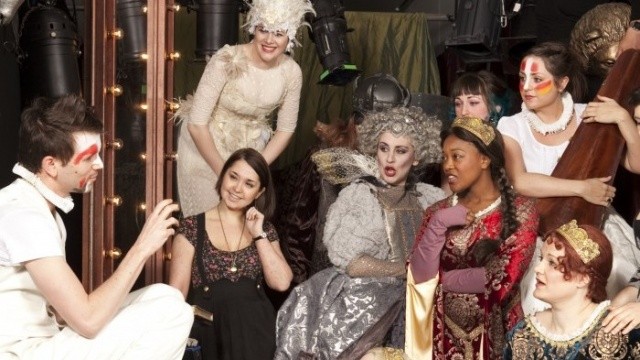A small company shames the Met by paying all its players
mainJust in from English Touring Opera:
The safety and security of our artists, audiences and staff is what matters most to English Touring Opera. For this reason, we have taken the decision to cancel all 52 remaining performances of our Spring 2020 tour, following the Government’s recommendations regarding non-essential travel and socialising, unless there comes a time when it is safe and practical to reopen.
We are committed to supporting our freelance artists as well as our technical and production staff in the challenging times ahead. We will be paying our 67 freelancers their fees for the full tour, all the way to what would have been the final scheduled performance on 27 June.
English Touring Opera travels to more regions and venues than any other English opera company, visiting 55 venues with up to 110 performances per year.






I am puzzled as to why everything is being compared to the MET? The ETO is a wonderful company but I am trusting their operating budget and logistics may be slightly less than what is involved in running a company the size of the MET. Perhaps it is time to give the vendetta a bit of a rest?
Because they seek financial and political support from the public, and because they leave a very large footprint in our art form.
As indeed do most cultural organizations in countries were there is no tax payer support. Why are orchestra closures not being compared to the larger orchestras in the United States and Canada as an example? I am asking this not to be confrontational but simply because I don’t get the logic.
The ETO does not own a venue and consequently does not employ lighting techs, carpenters and front of house teams. The ETO receives government subsidies and so does many of the venues that they travel to. The fixed costs of the two organisations are very different and consequently have different outcomes.
Yes — probably alone of the GREAT opera houses of the world, the Met does not receive significant government support. (I know, I know — it receives some, but not in proportion to the ROH, etc.).
The constant pounding of the Met for what seems a reasonable response in ITS circumstances is unbecoming. In the Duke of York sense.
Still, Willy’s “vendetta” was not exactly an ill-chosen word.
Bravo to Covent Garden who are paying everyone including guest artists up to at least 19th April. I understand WNO, ENO, Opera North and Scottish are doing the same.
Absolutely-let’s have a vendetta hiatus-we need it-and that should include everyone
I am happy to report that Symphony Nova Scotia in Halifax has been able to pay its musicians through the end of season (mid-May). Other things are not being paid, and they will definitely be losing revenue through ticket sales, but so proud of them for having grown and saved and increased audiences in past seasons which allowed this to give the permanent players some breathing room.
That’s great news! The situation in Winnipeg and Calgary is very sad. Here on the Island (PE not CB) we have had to cancel our last concert of the season and are looking at the impact this will all have on future seasons. And I’m sure the impact will be great on all the orchestras across the country.
Increasingly uncertain about the usefulness of these “this company that employs 12 people and gets public subsidy is doing this; why can’t that private company that employs 500 people and runs a major venue do exactly the same?” comparisons.
This is a pity– according to the Spectator, their last production of Cosi was “the vaccination we all need.”
The MET does get public subsidy from all the tax write offs the rich get from their donations to the Met. It ends up costing them nothing but it is tax foregone as the economists say.
A small American opera company is doing the same thing:
https://www.middleclassartist.com/post/breaking-des-moines-metro-opera-guarantees-to-honor-all-contracts-in-2020-summer-festival